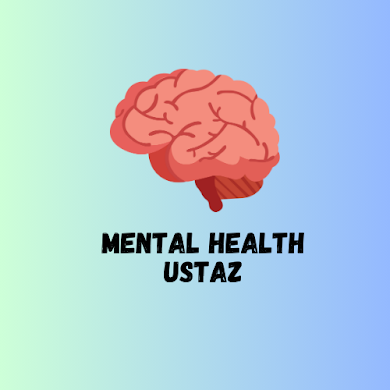## Introduction
Conflicts are an inevitable part of life, but how we handle them greatly impacts our mental well-being. In this comprehensive guide, we'll explore behaviors that can effectively reduce anxiety and promote relaxation during conflicts. By incorporating positive practices and strategies, you can navigate challenging situations with resilience and composure.
## Understanding Anxiety
### What is anxiety during conflicts?
Conflict-related anxiety is the emotional distress caused by disagreements or confrontations. Understanding its roots is the first step in managing it effectively.
### The importance of managing anxiety
Unchecked anxiety can lead to various health issues. Learn why it's crucial to address and manage anxiety during conflicts promptly.
## Positive Behaviors
### Active listening
Engage in active listening to foster understanding and defuse tension during conflicts.
### Empathy
Cultivate empathy as a powerful tool for creating connections and reducing anxiety.
### Maintaining composure
Discover the art of staying calm and composed, even in the heat of a conflict.
## Relaxation Techniques
### Deep breathing exercises
Explore deep breathing as a simple yet effective way to calm your mind and body.
### Mindfulness meditation
Embrace mindfulness meditation to cultivate present-moment awareness and reduce anxiety.
### Progressive muscle relaxation
Learn how progressive muscle relaxation can release physical tension, promoting relaxation during conflicts.
## Communication Strategies
### Clear communication
Master the art of clear communication to prevent misunderstandings and ease conflict.
### Conflict resolution skills
Equip yourself with essential conflict resolution skills for smoother interactions.
## Personal Boundaries
### Setting boundaries
Establishing personal boundaries is crucial for maintaining emotional well-being during conflicts.
### Knowing when to take a break
Recognize when it's necessary to step back and take a break to prevent escalating anxiety.
## Social Support
### Seeking support from friends and family
Discover the importance of seeking support from loved ones during challenging times.
### Professional help
Explore the option of seeking professional assistance for more complex conflict-related anxiety.
## Physical Activity
### Exercise as a stress reliever
Understand the role of exercise in reducing stress and anxiety.
### Outdoor activities
Connect with nature through outdoor activities to enhance relaxation.
## Cognitive Restructuring
### Positive self-talk
Challenge negative thoughts with positive self-talk to shift your mindset during conflicts.
### Changing perspective
Explore the power of changing your perspective for a more constructive outlook.
## Time Management
### Prioritizing tasks
Effective time management can alleviate stress. Learn to prioritize tasks during conflicts.
### Avoiding procrastination
Procrastination can intensify anxiety. Discover strategies to overcome this habit.
## Distraction Techniques
### Hobbies
Engaging in hobbies can divert your mind from conflict-related stress.
### Entertainment
Find joy in entertainment as a means of distraction during challenging times.
## Nutrition and Hydration
### Impact on mental well-being
Understand how nutrition and hydration play a crucial role in managing anxiety.
### Balanced diet
Maintain a balanced diet for overall mental and physical health.
## Sleep Hygiene
### Importance of quality sleep
Quality sleep is essential for resilience during conflicts. Learn tips for better sleep hygiene.
### Establishing a routine
Creating a sleep routine can contribute to a more restful night.
## Workplace Strategies
### Creating a supportive work environment
Promote a supportive work environment to reduce conflict-related stress.
### Conflict resolution at work
Navigate workplace conflicts with effective resolution strategies.
## Technology Detox
### Reducing screen time
Limiting screen time contributes to better mental health. Discover the benefits of a technology detox.
### Digital well-being
Prioritize your digital well-being for a healthier relationship with technology.
## Laughter Therapy
### Benefits of laughter
Laughing releases endorphins, reducing stress and anxiety.
### Incorporating humor
Learn how to incorporate humor into your life for a lighter perspective during conflicts.
## Nature Connection
### Outdoor spaces and mental health
Discover the mental health benefits of spending time in outdoor spaces.
### Nature walks
Take rejuvenating nature walks to enhance relaxation and reduce conflict-related anxiety.
## Journaling
### Emotional release through writing
Journaling provides a constructive outlet for processing emotions during conflicts.
### Reflection
Reflect on conflicts through journaling for deeper self-awareness.
## Visualization
### Guided imagery for relaxation
Practice guided imagery to create a mental sanctuary for relaxation during conflicts.
### Creating mental calmness
Visualize calming scenes to promote a sense of peace.
## Gratitude Practices
### Focusing on the positive
Shift your focus to positive aspects during conflicts through gratitude practices.
### Gratitude journaling
Keep a gratitude journal to reinforce a positive mindset.
## Conclusion
In conclusion, adopting these behaviors can significantly reduce anxiety and enhance relaxation during conflicts. Certainly! "Keep in mind, it's an ongoing process of self-exploration and improvement.". Embrace these strategies, and you'll find yourself navigating conflicts with greater ease and resilience.
get more information (https://www.healthline.com/nutrition/16-ways-relieve-stress-anxiety)




0 Comments